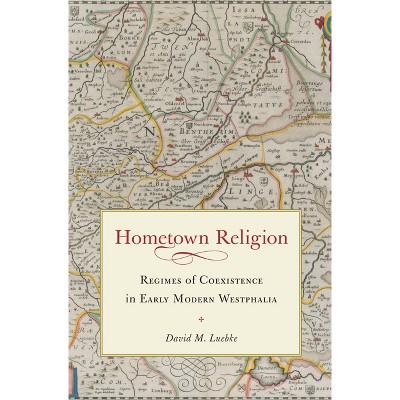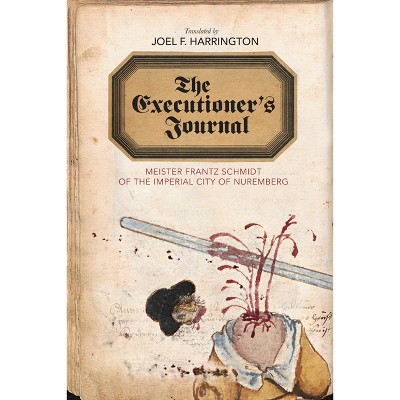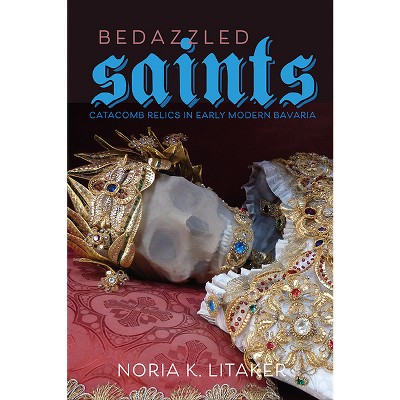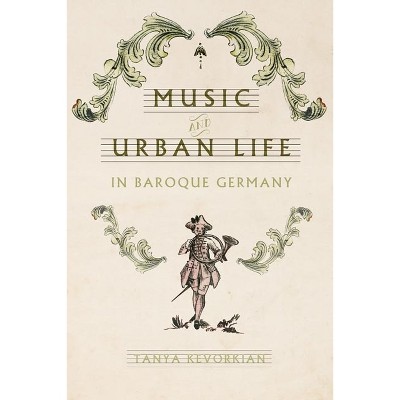A German Barber-Surgeon in the Atlantic Slave Trade - (Studies in Early Modern German History) by Johann Peter Oettinger (Hardcover)

About this item
Highlights
- As he traveled across Germany and the Netherlands and sailed on Dutch and Brandenburg slave ships to the Caribbean and Africa from 1682 to 1696, the young German barber-surgeon Johann Peter Oettinger (1666-1746) recorded his experiences in a detailed journal, discovered by Roberto Zaugg and Craig Koslofsky in a Berlin archive.
- About the Author: Craig Koslofsky, Professor of History and Germanic Languages and Literatures at the University of Illinois at Urbana-Champaign, is author of Evening's Empire: A History of the Night in Early Modern Europe.
- 222 Pages
- History, Europe
- Series Name: Studies in Early Modern German History
Description
About the Book
This journeyman's eyewitness account of all three routes of the triangle trade will be invaluable to scholars of the early modern world on both sides of the Atlantic.Book Synopsis
As he traveled across Germany and the Netherlands and sailed on Dutch and Brandenburg slave ships to the Caribbean and Africa from 1682 to 1696, the young German barber-surgeon Johann Peter Oettinger (1666-1746) recorded his experiences in a detailed journal, discovered by Roberto Zaugg and Craig Koslofsky in a Berlin archive. Oettinger's journal describes shipboard life, trade in Africa, the horrors of the Middle Passage, and the sale of enslaved captives in the Caribbean.
Translated here for the first time, A German Barber-Surgeon in the Atlantic Slave Trade documents Oettinger's journeys across the Atlantic, his work as a surgeon, his role in the purchase and branding of enslaved Africans, and his experiences in France and the Netherlands. His descriptions of Amsterdam, Curaçao, St. Thomas, and Suriname, as well as his account of societies along the coast of West Africa, from Mauritania to Gabon, contain rare insights into all aspects of Europeans' burgeoning trade in African captives in the late seventeenth century. This journeyman's eyewitness account of all three routes of the triangle trade will be invaluable to scholars of the early modern world on both sides of the Atlantic.
Review Quotes
Provides a remarkable glimpse of German connections to West Africa during the late 1600s from the vantage point of a relatively humble artisan... The journal [also] documents several forms of resistance among the captives aboard the Friedrich Wilhelm, including two attempted revolts.
Koslofsky and Zaugg advance several noteworthy arguments in the preface and introduction, beginning with their concise and successful demonstration of the relevance of Oettinger's journal for multiple historiographies that are rarely in conversation with one another... This book should be of great interest to scholars of West Africa and the transatlantic slave trade during the seventeenth century and will be a superb resource for undergraduate-level courses that address Africa's role in the making of early modern Europe.
--African Studies ReviewThe annotations allow a broad audience to follow the text without problems... for researchers interested in the slave trade of the seventeenth century, the laborers involved in this trade, and the culinary and medicinal practices aboard ship, this important publication by Koslofsky and Zaugg now offers an essential and instructive contribution.
--Schweizerische Zeitschrift für GeschichteThe book will be a valuable resource for anyone interested in early modern Germany and the slave trade, and it will be especially useful for those studying histories of race and medicine in such contexts. The journal is very teachable. Koslofsky and Zaugg have added subheadings to denote where Oettinger was when he was writing, making it easy to select the most relevant passages. It would make a fine addition to syllabi, especially when paired with an enslaved person's account of medical examination.
--Liana DeMarco, Yale UniversityThis is an extremely rare and uniquely insightful primary source that will be a landmark contribution to the historiographies of the Atlantic slave trade, African history, as well as German-speakers' involvement in early modern colonial projects.
--Birte Pfleger, California State University, Los Angeles, author of Ethnicity Matters: A History of the German Society of PennsylvaniaAbout the Author
Craig Koslofsky, Professor of History and Germanic Languages and Literatures at the University of Illinois at Urbana-Champaign, is author of Evening's Empire: A History of the Night in Early Modern Europe.
Roberto Zaugg, Professor of Early Modern History at the University of Zurich, is coeditor of Union in Separation: Diasporic Groups and Identitiesin the Eastern Mediterranean (1100-1800).











